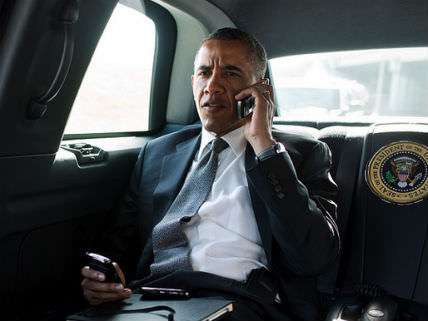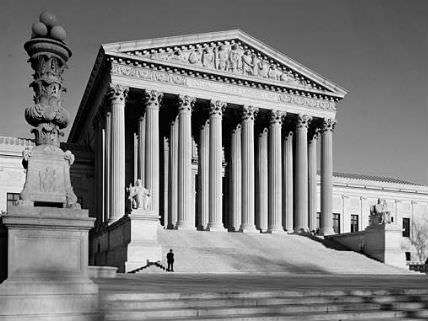5 Alarming Things We Should Have Already Known About the NSA, Surveillance, and Privacy Before Ed Snowden
A few reminders about the general state of surveillance and privacy in the U.S.A.
When former National Security Agency contractor Edward Snowden blew the whistle on NSA spying, the story had bracing and wonderful effects. But alert Americans should have already known at least five reasons to be alarmed at the agency and its activities, and the general state of surveillance and privacy in the U.S.A.
1. Whistleblowers have warned us about an out-of-control NSA before.
Before Snowden became a household name, there was Thomas Drake, indicted in 2010 under the Espionage Act after he said publicly that an NSA data collection program might be being used illegally to gather data on Americans. (Drake pled guilty to one small charge. The bigger ones were ultimately dropped.)
And don't forget William Binney and J. Kirk Wiebe. Each had their homes raided by the FBI in 2007, when they were suspected of being the sources of a 2005 NSA data-collection scandal broken by the New York Times. That scandal circled around the NSA's Bush-era warrantless wiretapping program.
These guys are in a position to know more than the average reporter about NSA capabilities and practice, so it's worth noting that Binney told the Daily Caller after Snowden's leaks that the NSA may have its mitts on more than just "metadata" or pen register stuff. They likely have audio as well:
The former FBI agent, Tim Clemente, says they can get access to the content of any audio, any phone call. He says that there are no digital communications that are safe or secure. So that means that they were tapping into the databases that NSA has. For the recorded audio, and for the textual materials like emails and phone…..Now I don't think they're recording all of it; there are about 3 billion phone calls made within the USA every day. And then around the world, there are something like 10 billion a day. But, while they may not record anywhere near all of that, what they do is take their target list, which is somewhere on the order of 500,000 to a million people. They look through these phone numbers and they target those and that's what they record.
The three whistleblowers' lawyer, Jesselyn Radack, explained to USA Today that the NSA doesn't take kindly to people who complain about illegal activity through official channels. "The inspector general was the one who gave their names to the Justice Department for criminal prosecution under the Espionage Act," she said. "And they were all targets of a federal criminal investigation, and Tom [Drake] ended up being prosecuted—and it was for blowing the whistle."
Even in the U.S. Senate, legislators such as Russ Feingold (D-Wisc.) and Ron Wyden (D-Ore.) long ago were warning that the government was secretly using its Patriot Act Section 215 authority to grab private information about Americans from private businesses. In 2006, then-Sen. Joe Biden, currently vice president, expressed alarm about the Bush-era NSA. Biden's concern did not just involve technical legality, which the 2008 FISA amendments supposedly took care of. It involved the core Fourth Amendment questions raised by such broad and intrusive data collection, even if the dragnet is only amassing patterns and not direct audio wiretaps.
2. Telecoms were already known to be cooperating with the government against their users.
There is a reason President Barack Obama was caught in a controversy in 2008 when he switched from opposing "telecom immunity" to supporting it: because we already knew the telecoms had been cooperating with warrantless NSA electronic data-grabs. The purpose of the immunity legislation was to be sure they couldn't be sued over it.

And remember how Chris Soghoian (currently with the American Civil Liberties Union) discovered in 2009 that both Verizon and Yahoo! were afraid that their customers would learn the extent to which they shared information with law enforcement. Yahoo! admitted that publicizing such facts would likely "shame" the company and "shock" its customers. As I quoted Soghoian in a 2010 American Conservative article, telecom and Internet providers "all have special departments, many open 24 hours per day, whose staff do nothing but respond to legal requests. Their entire purpose is to facilitate the disclosure of their customers' records to law enforcement and intelligence agencies."
3. By letter of the law, it's likely illegal for anyone to whistleblow or even report on the NSA's activities.
Marc A. Thiessen of the American Enterprise Institute has admitted his own complicity in a criminal enterprise by writing an op-ed in the Washington Post declaring that the Post, and anyone else reporting on Snowden's revelations, or anything about NSA spying is, by his read of federal law, a criminal.
Read 18 U.S.C. 798 and weep, patriotic Americans:
Whoever knowingly and willfully communicates, furnishes, transmits, or otherwise makes available to an unauthorized person, or publishes…any classified information—….
(2) concerning the design, construction, use, maintenance, or repair of any device, apparatus, or appliance used or prepared or planned for use by the United States or any foreign government for cryptographic or communication intelligence purposes; or
(3) concerning the communication intelligence activities of the United States or any foreign government;…Shall be fined under this title or imprisoned not more than ten years, or both.
If it makes you feel any better, later in the law it gives you a bye if you spill to a committee of Congress "upon lawful demand." Not that they are likely to demand it. Famous Pentagon Papers whistleblower Daniel Ellsberg, who supports Snowden, nonetheless agrees his whistleblowing violated that statute.
4. Massive NSA data hoovering was already well-understood to be ongoing by those familiar with the agency.
Readers of Reason knew the big picture all along: the NSA was involved in grabbing great amounts of domestic electronic communication, likely in violation of even the very loose standards in place after the FISA amendments of 2008. Jacob Sullum noted here in April 2009 that the NSA "has been abusing its new statutory powers, collecting purely domestic communications along with the international phone calls and email messages covered by the FISA amendments."
Even before revelations about Prism this month, NSA chronicler James Bamford reported at length in his 2009 book Shadow Factory that the NSA has its own room at a huge AT&T facility in San Francisco through which enormous amounts of domestic electronic communication were funneled, where the agency was essentially grabbing everything. Similar systems were at place in other AT&T hubs, likely grabbing other carrier's traffic as well.
As Bamford wrote in Shadow Factory, the NSA already had the goal to "create a database of every call ever made" in the country. Unable "to show probable cause, or even a reasonable suspicion…the NSA was on an expensive fishing expedition….People became NSA targets simply because they happened to call a target." NSA then began tossing lots of these domestic numbers as "unsolicited leads" to the FBI so they could directly tap domestic calls. As Bamford reports, this wasted a great deal of FBI time, to who knows what detrimental effect.
Bamford concluded that as early as 2008, anyone paying attention knew that "the idea of communications privacy in the United States has literally become a joke." Pranksters in the Billboard Liberation Front altered an AT&T billboard to read: "AT&T works in more places, like NSA HEADQUARTERS."
5. The Fourth Amendment has already been effectively gutted when it comes not only to national security, but to domestic law enforcement.

As Julian Sanchez of the Cato Institute ably explains in a Bloomberg op-ed, when the Supreme Court limited Fourth Amendment protections for "business records," it set us on a slippery slope that ended with pretty much any information you willingly give to a third party, like a phone company, becoming fair game for the government to grab. And as Ed Krayewski detailed here at Reason last week, the exigencies of fighting the Drug War have led to even more gutting of the protection against unreasonable searches and seizures.
These reminders of what we already should have known about government surveillance is not meant to denigrate the importance of Snowden's revelations. Whether the public reaction (and media reaction) to the revelations should satisfy privacy mavens is a more depressing story.
Those who care about privacy issues should contemplate what was already in the public record and consider how fragile "public awareness" can be, how knowledge available to the alert can all-too-quickly fade from the body of information that forms most Americans' view of the world. One of the challenges now is to ensure that what Snowden has told (or reminded) us about the NSA, and the world of surveillance in which it's enmeshed, doesn't fade from Americans' too short memories.
